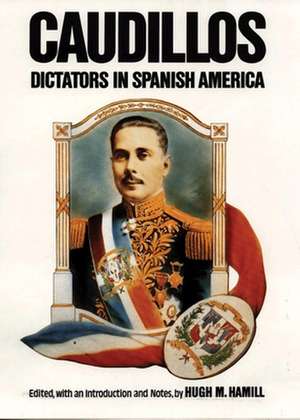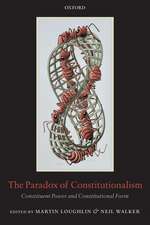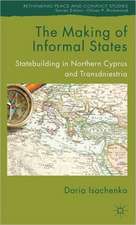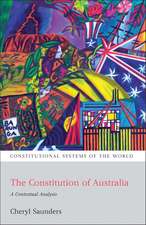Caudillos
Editat de Hugh Hamillen Limba Engleză Paperback – 31 dec 1991
Preț: 206.25 lei
Nou
Puncte Express: 309
Preț estimativ în valută:
39.47€ • 41.06$ • 32.59£
39.47€ • 41.06$ • 32.59£
Carte tipărită la comandă
Livrare economică 15-29 aprilie
Preluare comenzi: 021 569.72.76
Specificații
ISBN-13: 9780806124285
ISBN-10: 0806124288
Pagini: 384
Dimensiuni: 133 x 198 x 23 mm
Greutate: 0.52 kg
Ediția:Revised
Editura: University of Oklahoma Press
ISBN-10: 0806124288
Pagini: 384
Dimensiuni: 133 x 198 x 23 mm
Greutate: 0.52 kg
Ediția:Revised
Editura: University of Oklahoma Press
Textul de pe ultima copertă
All societies have had personalist leaders. There is little dispute, however, that Spanish American caudillos have been more numerous and more pervasive than such leaders in other regions. Further, while the words caudillo and caudillismo are variants of dictator and dictatorship, they have a special resonance that suggests the unique political environment of Spanish America. It can be argued that a caudillo is able to achieve legitimacy within the established value system, whereas a dictator depends primarily on force to sustain power and is, therefore, illegitimate. Definition often depends upon whether one favors or opposes a particular authoritarian leader. In this major revision of the Borzoi Book Dictatorship in Spanish America, editor Hugh Hamill has presented conflicting interpretations of caudillismo in twenty-seven essays written by an international group of historians, anthropologists, sociologists, political scientists, journalists, and caudillos themselves. The theoretical arguments in Hamill's introduction and the first five chapters are followed by twenty-two chronologically arranged essays on individual caudillos. The selections represent revisionists, apologists, enemies, and even a victim of caudillos. The personalities discussed include the Mexican priest Miguel Hidalgo, the Argentinian gaucho Facundo Quiroga, the Guatemalan Rafael Carrera, the Colombian Rafael Nunez, Mexico's Porfirio Diaz, the Somoza family of Nicaragua, the Dominican "Benefactor" Rafael Trujillo, the Argentinians Juan Peron and his wife Evita, Paraguay's Alfredo Stroessner--called "The Tyrannosaur", Chile's Augusto Pinochet, and Cuba's Fidel Castro. The reader emerges with a heightened awareness ofthe almost infinite varieties of caudillismo and of the complex culture in which this controversial Spanish American phenomenon is to be found. Photographs of the caudillos accompany the text.

















